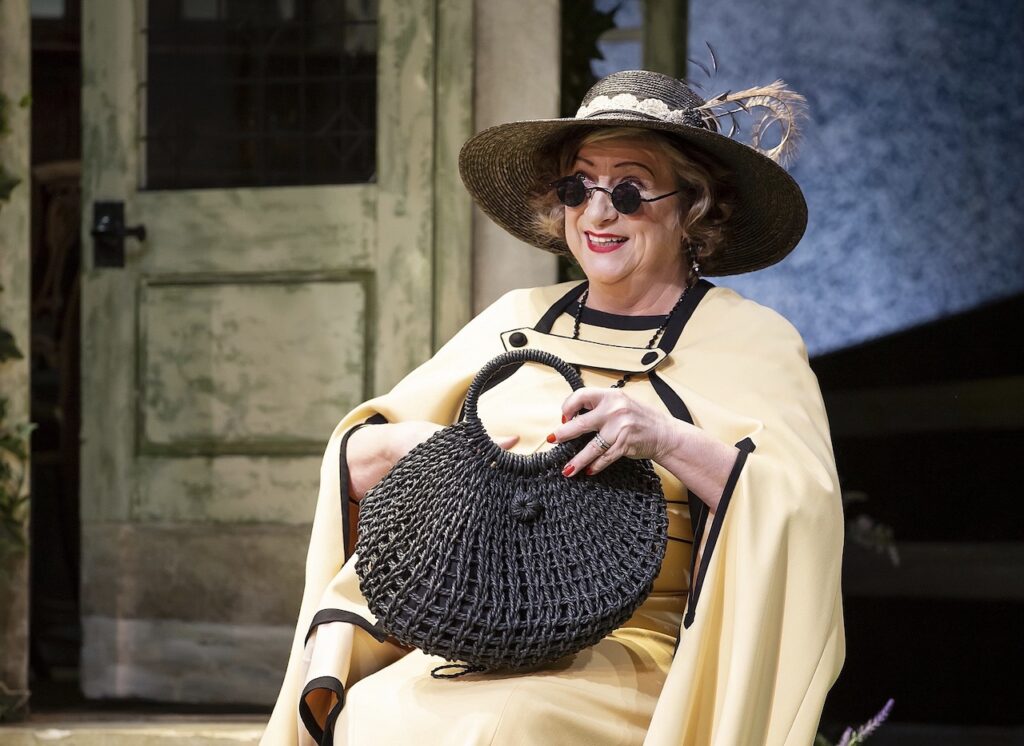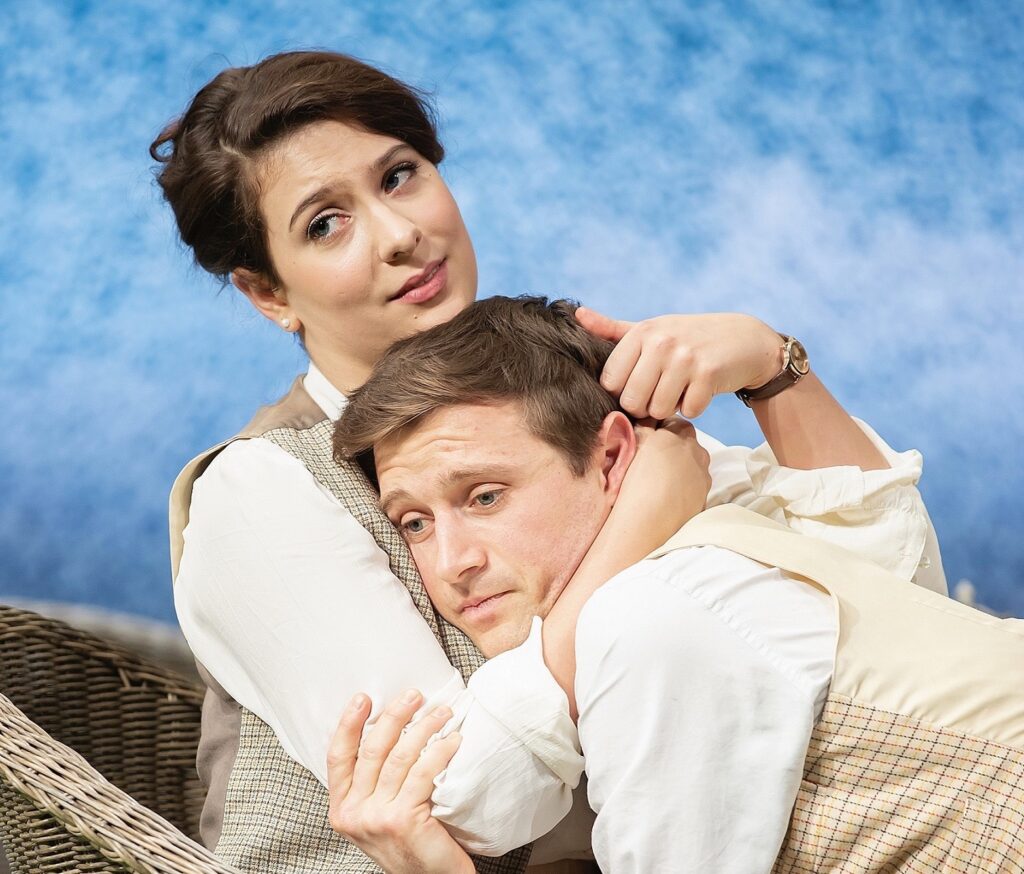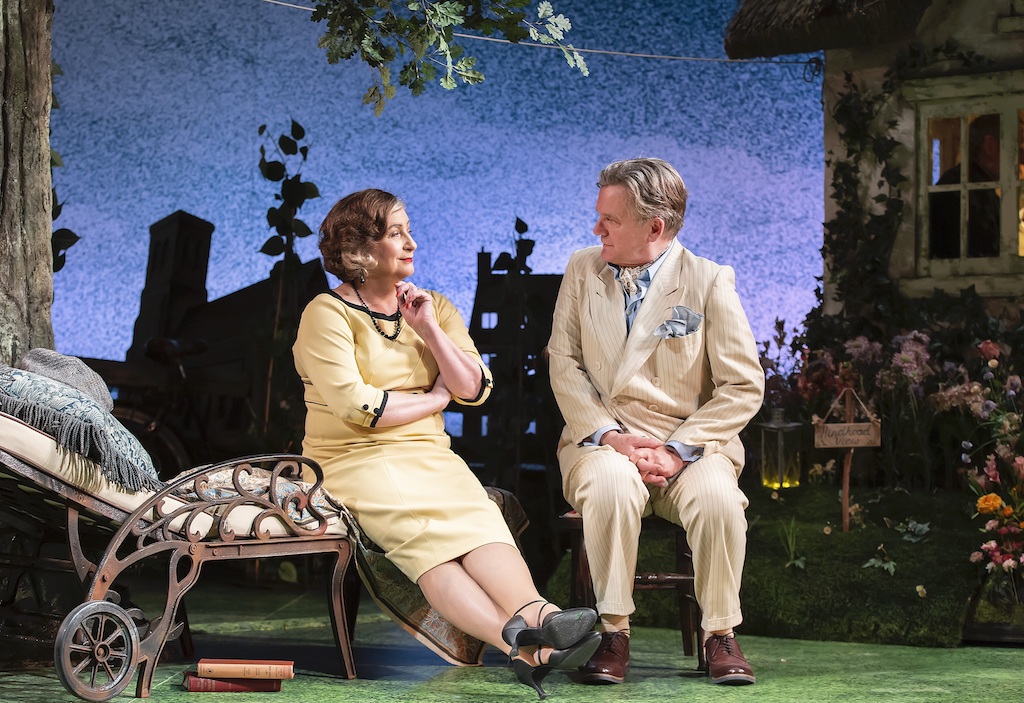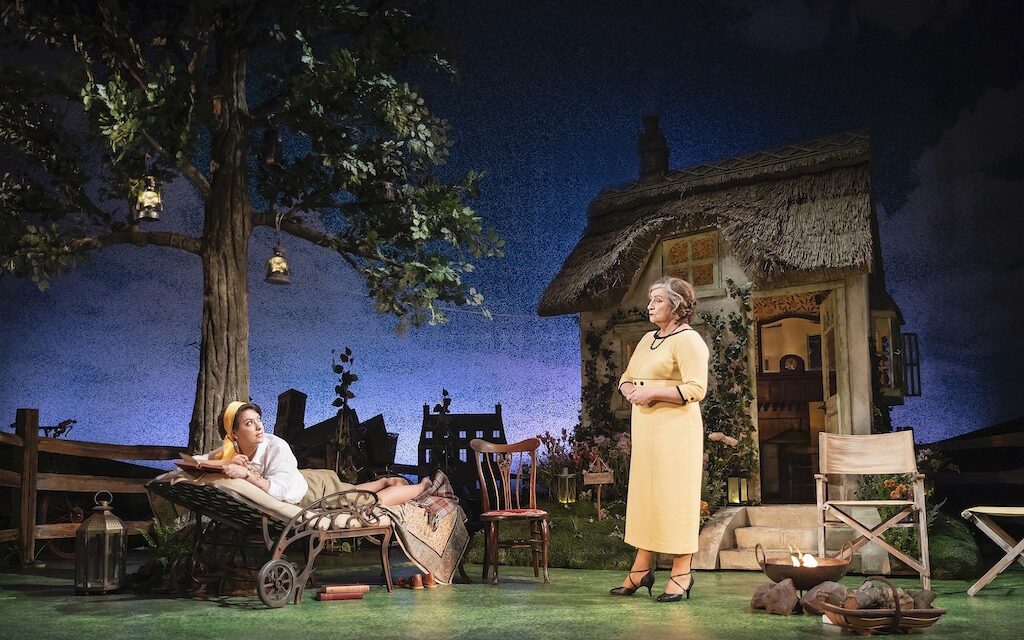
9 – 19 November
Directed by Anthony Banks, this production of Mrs Warren’s Profession is blessed with polished performances from its entire cast, including real-life mother and daughter Caroline and Rose Quentin. Shockingly for its time, this is a play that uses prostitution as a metaphor for all that is hypocritical and exploitative in so-called ‘polite’ society. Shaw’s lengthy 1902 preface refers to the ‘hysterical tumult of protest’ and ‘moral panic’ with which it was received. Over one hundred years later it lacks that power to create outrage, and with ‘prostitute’ and ‘sex’ never actually being spoken it can even seem rather coy. Nevertheless, though it is a little creaky in places, it still has something to say about those social structures which mitigate against freedom and independence for women.
Vivie, Mrs. Warren’s daughter, is a talented mathematician who aspires to become an actuary. Rose Quentin portrays her as no-nonsense in manner, business-like in attire, and equipped with a bone-crushing handshake. In endowing her with these masculine attributes Shaw appears to suggest that in pursuing a career Vivie must abandon all feminine traits. That now seems a horribly old-fashioned view. She is pursued by two men, neither of which she has any intention of marrying. Frank Gardner (Peter Losasso) is an attractive, charming young man, but incorrigibly lazy.

Her other suitor is the wealthy Sir George Crofts (Simon Shepherd), twenty-five years older than Vivie and ruthlessly pragmatic in offering her wealth and status in exchange for her youth and beauty. When rejected he becomes threatening. Shaw is generally non-judgmental of his characters, reserving his condemnation for the two-faced sanctimony of ‘respectable’ society in general, but the predatory Crofts is surely the chief villain of this play.

At the heart of Mrs Warren’s Profession lies the relationship between Vivie and her mother. Unbeknown to Vivie, Mrs Kitty Warren is a former prostitute, and in partnership with Sir George she has been running a chain of brothels (‘hotels’) across Europe. Caroline Quentin portrays Kitty as a force of nature, flirtatious and unashamedly vulgar in comparison with her well-educated daughter. She has known real poverty, and knows too the hypocrisy of the wealthier classes, which she has exploited to the full. The most touching moment comes when she describes to Vivie the hard choices she has had to make. Eventually, Vivie coldly and cruelly rejects her, not so much for her immorality, but more so for her conventional expectation that Vivie will get married and look after her mother in her old age.
Striking features of this production are David Woodhead’s three set designs. There is a thatched cottage so tiny that it can barely accommodate two people, and an equally tiny church where it is necessary to crouch down to get through the lychgate. It is only in the final scene where we see Vivie at work in a spacious office that the set is human-sized. Vivie has escaped from the cramping confinement of conventional life and it is a clever touch to use the sets to underpin that idea. There is much else to enjoy, including Matthew Cottle’s portrayal of the pompous but incompetent Reverend Gardner, and Stephen Rahman-Hughes’ depiction of the hopelessly romantic aesthete Praed, good-natured but ineffective in the real world. However, this is not a play that encourages one to identify emotionally with any of its characters, all of whom are rather lacking in warmth and subtlety. It is a determinedly didactic piece that delivers its message with considerable wit, but little heart.
★★★☆☆ Mike Whitton, 16th November, 2022
Photo credit: Pamela Raith


